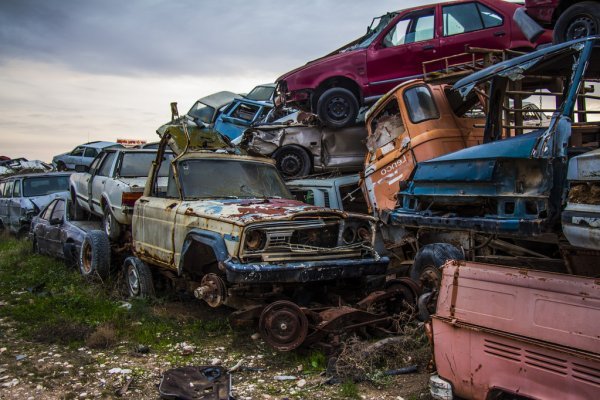Every year, thousands of cars reach the end of their life across Australia. Some stop running due to accidents, while others wear out after decades of use. In the past, many of these cars would end up in landfills, buried under soil and forgotten. However, this approach created long-term environmental problems that communities are still dealing with today.
In Townsville, the practice of car recycling has grown as a sustainable alternative. Instead of leaving old vehicles to rust in the ground, recycling gives their parts and metals a second life. This shift not only protects the environment but also creates opportunities for industries that rely on recycled materials. https://www.cash4carstownsville.com.au/
Why Landfilling Cars Became a Problem
Landfills were once seen as the easiest way to get rid of unwanted items, including vehicles. When old cars were discarded in landfills, several serious issues followed:
-
Space consumption: Cars are large objects. Placing them in landfills quickly filled up available space, reducing capacity for other forms of waste.
-
Hazardous fluids: Old cars contain engine oil, coolant, transmission fluid, and brake fluid. When left in the ground, these substances can leak into soil and groundwater, polluting natural resources.
-
Non-biodegradable materials: A large part of a car is made of steel, aluminium, and plastics. These materials do not break down easily, meaning they can remain in the ground for centuries.
-
Loss of valuable resources: Metals that could have been reused were instead left to rust, creating a missed opportunity for recycling industries.
These problems led governments and communities to rethink how end-of-life vehicles should be handled.
The Rise of Car Recycling in Townsville
Townsville has developed recycling systems that ensure old vehicles do not end up in landfills. Instead, they are processed through structured steps that maximise resource recovery while reducing environmental harm.
Recycling a vehicle usually involves:
-
Draining fluids – All hazardous liquids are carefully removed to prevent leaks.
-
Removing reusable parts – Components such as tyres, batteries, alternators, and gearboxes are taken out and prepared for resale.
-
Shredding and sorting – Once stripped, the car’s body is crushed and sent through shredders where metals, plastics, and glass are separated.
-
Reusing metals – Steel and aluminium from old cars are melted down and used in construction, manufacturing, and new vehicles.
This process allows up to 80–90% of a vehicle’s materials to be recovered, which dramatically reduces the amount of waste entering landfills.
Environmental Gains of Recycling vs. Landfilling
The difference between recycling and dumping cars is significant. Recycling supports cleaner air, water, and soil, while landfilling creates lasting damage.
-
Reduced pollution: Recycling prevents toxic substances from leaking into the environment. By removing and safely processing fluids, recyclers ensure harmful chemicals do not contaminate natural systems.
-
Lower carbon footprint: Producing metals from raw mining requires large amounts of energy. Using recycled steel saves around 74% of the energy needed compared to creating new steel.
-
Resource conservation: Every recycled car reduces the demand for new raw materials. This protects natural landscapes from the damage caused by mining and quarrying.
-
Cleaner landscapes: Instead of derelict cars rusting in open fields or being buried in landfills, recycling keeps communities cleaner and reduces the spread of abandoned vehicles.
Economic and Social Impact in Townsville
Car Recycler Townsville is not only about protecting the environment. It also brings positive outcomes for the local economy and community.
-
Job creation: Recycling operations require workers for dismantling, transporting, sorting, and processing vehicles.
-
Supply chain support: Recycled materials are sold to industries that use them in new products, strengthening local manufacturing.
-
Affordable parts market: Many people in Townsville purchase second-hand car parts from recycled vehicles. This gives drivers more affordable options while reducing demand for new production.
By keeping cars out of landfills, Townsville supports a circular economy where resources are continuously reused rather than wasted.
The Global Context: Where Townsville Fits In
Globally, the automotive industry is one of the largest producers of recyclable metals. Studies show that vehicles are among the most recycled consumer products worldwide. In countries like Japan and Germany, recycling systems are highly advanced, with recovery rates above 90%.
Townsville’s approach aligns with this global movement. While smaller in scale compared to larger cities, Townsville contributes to the international effort of reducing waste and reusing valuable resources. This demonstrates how even local recycling yards play a role in tackling environmental challenges that affect the entire planet.
Challenges and Future Directions
While car recycling has clear advantages, it also faces challenges:
-
Complex car designs: Modern vehicles contain advanced electronics, plastics, and composite materials that are harder to recycle.
-
Collection systems: Some cars are abandoned or illegally dumped, making it difficult to bring them into recycling facilities.
-
Awareness gaps: Not every car owner understands the importance of recycling. Some may still choose to leave vehicles unused in backyards or send them to landfills.
Looking ahead, Townsville can expand its recycling impact by adopting new technologies for separating materials, improving collection networks, and raising awareness among residents.
A Look at Car Recycler Townsville
One example of how recycling is put into action can be seen in Car Recycler Townsville, where vehicles are dismantled and processed to maximise reuse. By carefully handling hazardous fluids and extracting usable parts, they prevent waste from entering the ground. This demonstrates how local recyclers contribute directly to protecting Townsville’s environment.
Conclusion
The choice between car recycling and landfilling is more than just about waste disposal. It shapes the health of the environment, the strength of the local economy, and the future of communities.
By turning away from landfills and embracing recycling, Townsville ensures that old vehicles are not left to pollute the soil or waste valuable resources. Instead, they are given a new purpose through reuse and transformation. This shift shows how one city’s commitment can contribute to a more sustainable world, keeping old cars out of the ground and ensuring a cleaner future for generations to come.
